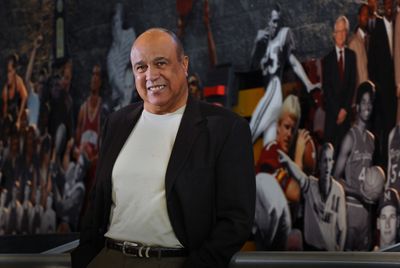First black player in ACC paved the way
Maryland’s Hill now realizes the importance of his sacrifices

COLLEGE PARK, Md. – Darryl Hill’s love of football came with a price: abuse, hatred and death threats. Such was the cost for breaking the racial barrier in the Atlantic Coast Conference in 1963. It is only now – the prejudice still clear in his mind – that Hill realizes the importance of his sacrifices.
“People tell me some of the things I did may have been an element in equality for African-Americans,” he said. “They say I created an equal playing field for college athletics.”
Barack Obama would argue that Hill’s courage transcended college sports. The president-elect recently sent Hill a personal letter, thanking him for being a “pioneer” in the “long struggle” to eradicate prejudice in this country.
“Never in my wildest dreams did I think I would see an African-American as president. Not in my lifetime,” said the 65-year-old Hill. “Maybe I had something to do with that.”
Hill’s struggle at Maryland is a significant chapter in the HBO documentary “Breaking the Huddle,” which tells the story of college football’s integration in the South. It is scheduled to debut Tuesday.
The United States was vastly different 45 years ago when Lee Corso, then coach of the Maryland freshman team, asked Hill to play football for the Terrapins.
“I said, ‘Lee, you must have forgotten what conference you play in,’ ” Hill recalled. “Corso said, ‘Well, that’s the point.’ ”
Hill was the only black player at his high school, and was the first African-American player at Navy before he left the academy after his freshman year upon deciding he didn’t want to serve in the military.
“I was a running back, and wanted to transfer to schools with a great running back tradition like Syracuse, Ohio State or Penn State,” Hill recalled. “But others in the black community encouraged me to go to Maryland, and I came to the realization that I was probably the right guy. I had played at all-white schools, and I had a temperament like Jackie Robinson (who broke baseball’s color barrier in 1947). I wasn’t going to let it bother me.”
He spent his first year at Maryland playing for the scout team, having been forced to sit out a season because of NCAA transfer rules.
“He had to prove himself every day,” said Jerry Fishman, then a running back for Maryland. “On the scout team, he was meat for the lions.”
Fishman, the only Jewish player on the team, was also subjected to prejudice at the school. From that common bond, Hill and Fishman became friends and roommates.
Fishman remembers a game at South Carolina when fans pelted the Terrapins with drinks and whiskey bottles at halftime. During a game at Wake Forest, Hill was knocked unconscious by what Fishman called a “blindside hit that came so late we were already huddling up for the next play.”
Hill is now a member of the Terrapin Hall of Fame and works for the school as a major fundraiser, but it doesn’t take much to remind Hill what it was like to be the only black man on the football field.
Hill was standing on the sideline next to Baltimore Ravens linebacker Ray Lewis last year when a cannon went off to celebrate a Maryland touchdown.
Hill nearly jumped into Lewis’ arms. The cannon shot took Hill back to 1963. Before his first home game, Hill received a frightening phone call in his dorm.
“I was told that if I went out on the field, someone in the rafters with a high-powered rifle would kill me,” he recalled.
Hill scored a touchdown that day, and cannon fire immediately marked the occasion.
“I thought they shot me. I threw the ball up in the air,” Hill said. “I never did get used to that cannon.”